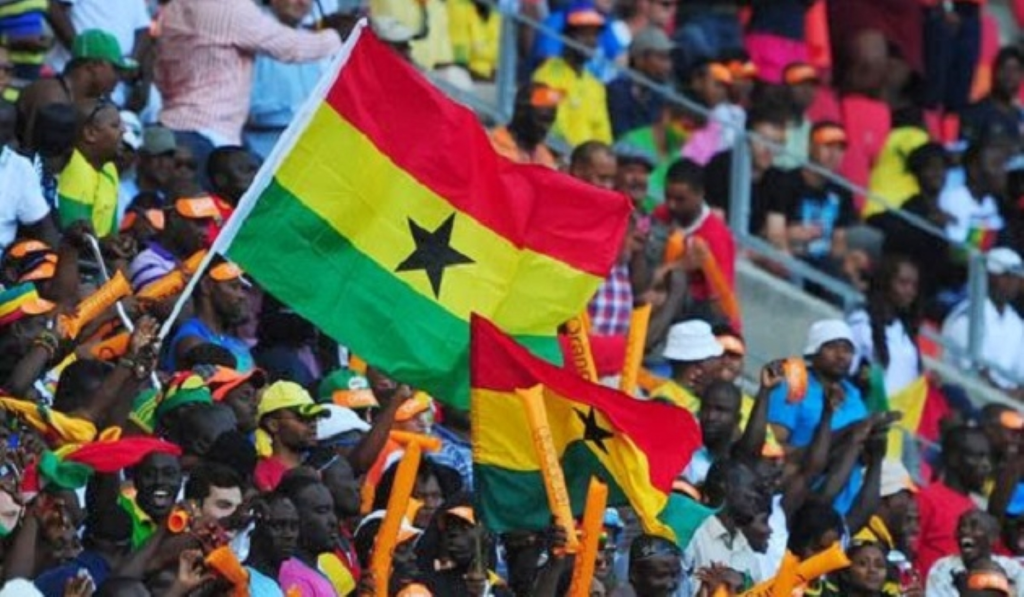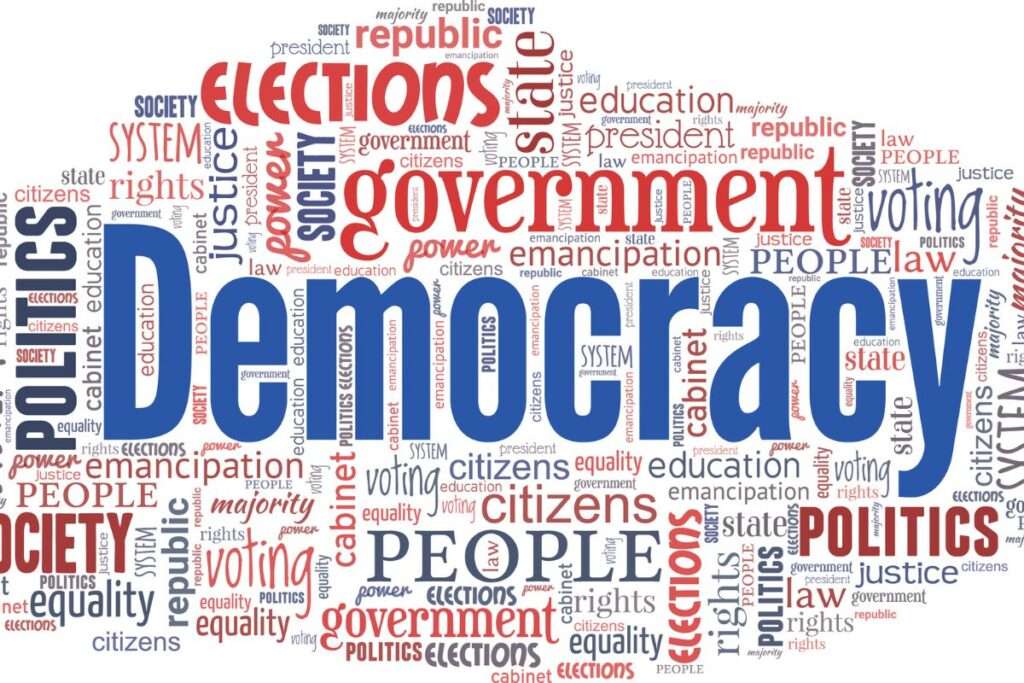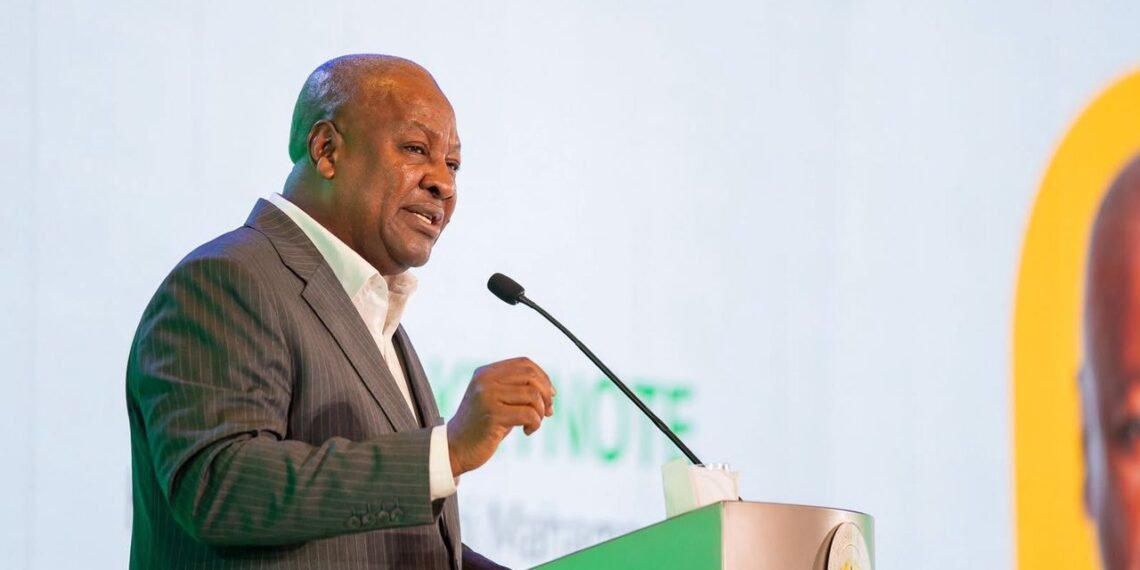President John Dramani Mahama has emphasized the critical importance of protecting democracy in Ghana and throughout Africa.
Addressing an audience of political leaders, civil society groups, and international stakeholders at the 2025 Democracy Dialogue, the President praised Ghana’s progress since 1992 while issuing a sobering warning about the challenges threatening democratic stability.
President Mahama celebrated Ghana’s long-standing reputation as a beacon of democracy on the continent, highlighting the country’s record of “peaceful transitions, a vibrant media, and resilient civil society.”
However, he cautioned that democracy is under strain from a range of internal and external forces.
“Let us be candid. Some negatives in our politics threaten the survival of democracy.”
President John Dramani Mahama
President Mahama emphasized that growing inequality, limited opportunities for young people, the monetization of politics, and the spread of misinformation are among the key issues undermining the democratic process.
These negative trends, he warned, pose “grave risks to the survival of democracy.”
Quoting Ghana’s first President, Kwame Nkrumah, Mahama underscored the need to protect freedom and democracy.
“Kwame Nkrumah once warned, and I quote, ‘Freedom is not something that one people can bestow on another as a gift. They claim it as their own, and none can keep it from them.’”
President John Dramani Mahama
Mahama adapted this sentiment to today’s context, explaining that just as freedom must be fiercely defended, so too must democracy.

He explained that the decline or collapse of democratic systems is often driven by weak institutions that fail to protect citizens’ rights, widespread corruption and elite capture that erode public trust, as well as exclusion and inequality that marginalize sections of the population.
Poor leadership that undermines the legitimacy of governments and external pressures that exploit vulnerabilities within the system also play a significant role.
“So, my question is, why do democracies fail, and why do democracies die?” Mahama asked rhetorically, noting that the answer lies within these interconnected threats.
Strengthening Institutions And Delivering Development
President Mahama stressed that to renew and strengthen democracy, African nations must take deliberate and coordinated actions.
He called for investments in strong, independent institutions such as the judiciary, parliaments, and electoral bodies to ensure fair governance and the protection of citizens’ rights.
According to Mahama, development is also key to sustaining democracy.
“Democracy without development, democracy without roads, democracy without schools, hospitals, and jobs will always be at risk,” he emphasized, pointing out that tangible improvements in people’s lives are essential for maintaining public trust in democratic systems.

Education was another cornerstone of Mahama’s vision. Citing the late revolutionary leader Thomas Sankara, he said, “A soldier without political education or ideological training is a potential criminal. The same is true of leadership without ethical grounding.”
Mahama also urged the protection of media freedoms and civic spaces, calling a free press “democracy’s immune system.”
He stressed the importance of building regional solidarity, warning that the downfall of democracy in one country has ripple effects across neighboring nations.
Ghana’s Commitment To Democracy
As host of the Democracy Dialogue, Mahama pledged Ghana’s continued leadership in promoting democratic governance within West Africa.
He assured the audience that his government would “defend the independence of our institutions, support free expression, and stand with ECOWAS in promoting democratic governance across West Africa.”
“Democracy dies when citizens lose faith, when leaders abandon integrity, and institutions succumb to capture. But democracy can be renewed when citizens rise to defend it.”
President John Dramani Mahama

He echoed the words of former Czech President Václav Havel, who said, “The salvation of this human world lies nowhere else than in the human heart.”
Mahama’s speech ended on a hopeful note, encouraging both leaders and citizens to take bold steps to protect democracy for future generations. “Let this dialogue in Accra be remembered not as a lament for dying democracies, but as a rebirth of hope,” he said.
He urged participants to leave the event with a renewed commitment to strengthening democratic governance: “Let us safeguard our democracies, make them deliver, and pass on to future generations a legacy of freedom, justice, and dignity.”
Mahama closed his address with a powerful African proverb: “When the roots of the tree are deep, there is no reason to fear the wind.”
He likened strong democratic foundations to these roots, saying that if nations deepen their democratic values, they will withstand any storm of unconstitutional governance.
“If we deepen the roots of our democracy in our nations, it will withstand any storm,” Mahama declared, calling for unity and courage in the face of growing threats.
READ ALSO: Twi Telenovelas Threaten Survival of Local Film Industry



















